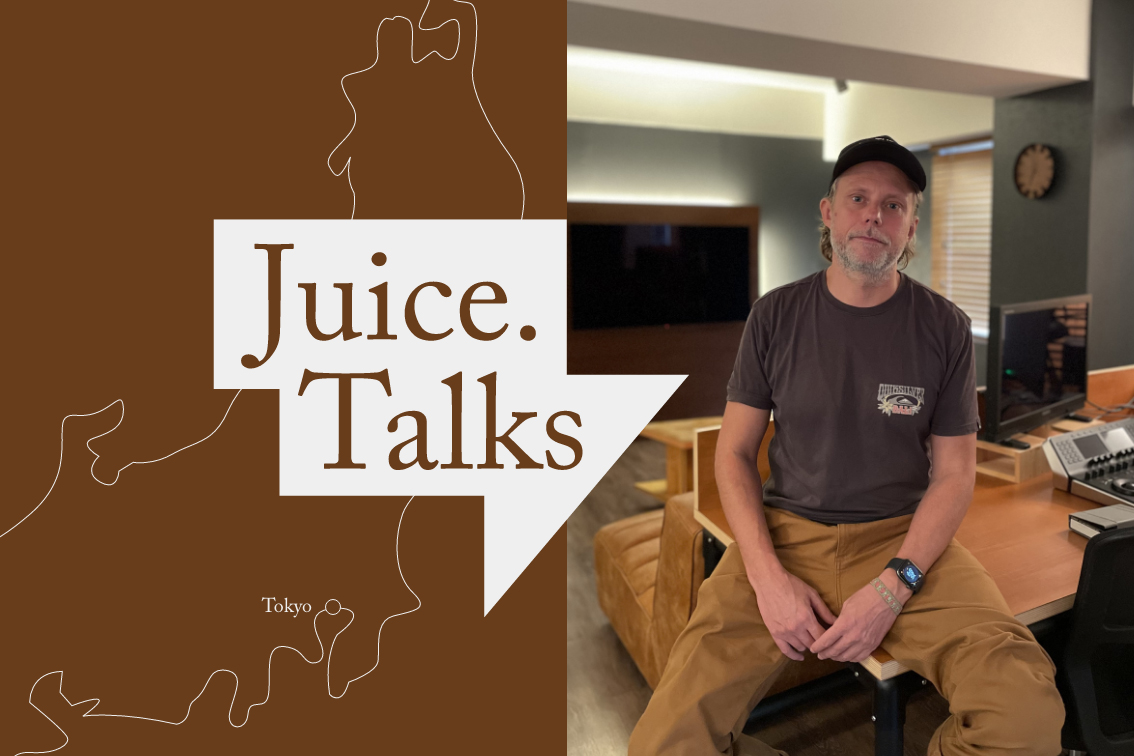Juice Talks Japan: Godzilla-Sized VFX, Immersive Worlds and Motion Design Magic

In this lively chat, Michał ‘Mewa’ Dwojak-Hara, MD at Juice visual effects studio and the maestro of its Tokyo outpost, navigates the exciting landscape of Japan’s VFX and motion design industry. With a treasure trove of experience and a knack for spotting trends, Michał discusses the unique challenges and opportunities that make this creative scene truly one of a kind.
How would you describe the current state of the VFX and motion design industry in Japan, and what unique trends or challenges distinguish it from other global markets?
Japan’s VFX scene is really having its moment! Godzilla Minus One nabbed an Oscar in 2024, and The Boy and the Heron won for animation – it feels like the world is finally catching on to what we’ve known all along: Japan’s visual effects game is seriously strong. Plus, with Shōgun just winning an Emmy for VFX, you can really feel the momentum building!
Japan has always had a very distinct visual culture, deeply rooted in its anime and manga legacy. We’ve had the opportunity to work on commercials featuring iconic IPs like Jujutsu Kaisen and Attack on Titan, which is not just cool, but it also shows how integrated these stories are into everyday life here. I’ll just leave a couple of links for anyone who hasn’t caught those yet: Jujutsu Kaisen and Attack on Titan.
The local industry’s unique challenge, though, is navigating this blend of tradition and innovation. Japan has a ton of cosmetic and beauty brands with a massive ad market, but we’re seeing shifts that align with global trends, especially as more immersive and tech-driven campaigns come into play.
In 2024, which design trends are you most excited about? Are there specific styles of techniques, such as the growing use of 3D, procedural design, or augmented reality (AR), that you anticipate becoming more and more popular in Japan?
Tokyo is a trip when it comes to visuals! Every day, I’m commuting past these insane full-on FOOH (Fake Outdoor-Of-Home) and projection-mapping campaigns, and I’m thinking, “We need to do more of that!” There’s so much potential to push those boundaries. Immersive design is going to be huge here – Japan loves its sensory experiences. Just look at TeamLab’s work, blending art, nature, and digital design into immersive spaces. They’ve set a really high bar, and it’s something we’re inspired by at Juice Tokyo too. We even worked on a digital exhibition at Haneda airport that blended AR with interactive art. That stuff just sticks with you. Check it out below.
But Japan is a paradox sometimes – while it’s ahead in some areas, it’s playing catch-up in others. Virtual production using LED screens? Still pretty fresh here, whereas elsewhere it’s practically the industry standard.
How are new technologies like AI, and generative design influencing your work? Have these tools changed the creative process or the way your team approaches projects?
AI is just a tool, not a takeover. We use it in our pipeline to help with some technical tasks, like plate changing, paint and roto, and image upscaling or denoising. But it’s definitely not here to replace our creative team! Instead, it frees us up to focus more on artistry and storytelling while taking care of the heavy lifting. We believe that humans are an irreplaceable part of the creative process, and for us, it’s all about enhancing our work, not replacing it. This is particularly crucial in our Tokyo office, where we strive to bridge the gap between the traditional East and the modern West. We require experienced artists who can skillfully blend these worlds with flexibility. This is where the human touch becomes indispensable.
As the industry evolves, where do you see motion design heading in the next few years, both in Japan and globally? How is your team preparing for future shifts, such as the rise of AR and AI?
The future’s already unfolding in the metaverse and Web3 spaces. Just look at what we did with the OKX Collective and Manchester City. It’s a full-on virtual world where fans can interact with their favorite players and explore Web3. These digital spaces are where brands will want to build their presence next. Take a look at the behind the scenes video.
For us, it’s about staying nimble—experimenting with AI in digital transformation, and constantly asking, “What’s next?” In Japan, we’re seeing more interest in these spaces, but it’s still evolving. Globally, we’re keeping an eye on how AR will integrate more seamlessly into everyday life.
Can you tell us about one of the most recent projects your studio has completed? What were the key challenges and creative solutions involved?
We just wrapped two big automotive projects, including the SMART Concept 5, in cooperation with Katana Studio. It was a tough but exciting full CG job. From the technical side, we had to find a balance between making the car’s design look sleek while giving it character—a bit of personality for an inanimate object, you know?
Juice Tokyo stands out as one of the few bilingual studios in Japan, bridging the local creative industry with the international market. On top of that, our close connection with Juice Shanghai means clients in Asia get the best of both worlds—quicker turnarounds, local insights, and smooth collaboration without the usual international hurdles. We blend global creativity with a deep understanding of the local market, so projects not only hit deadlines but also resonate on a cultural level.
